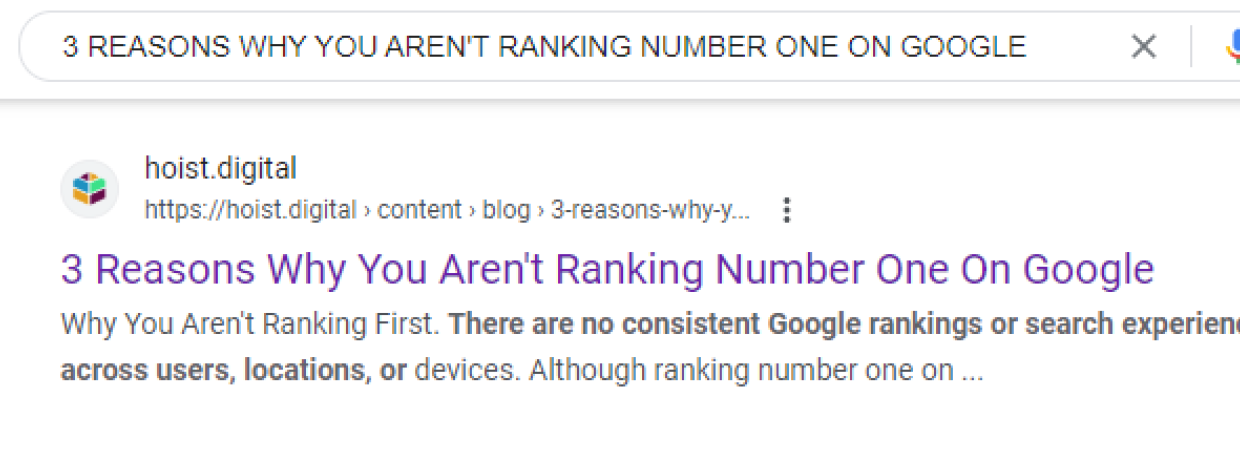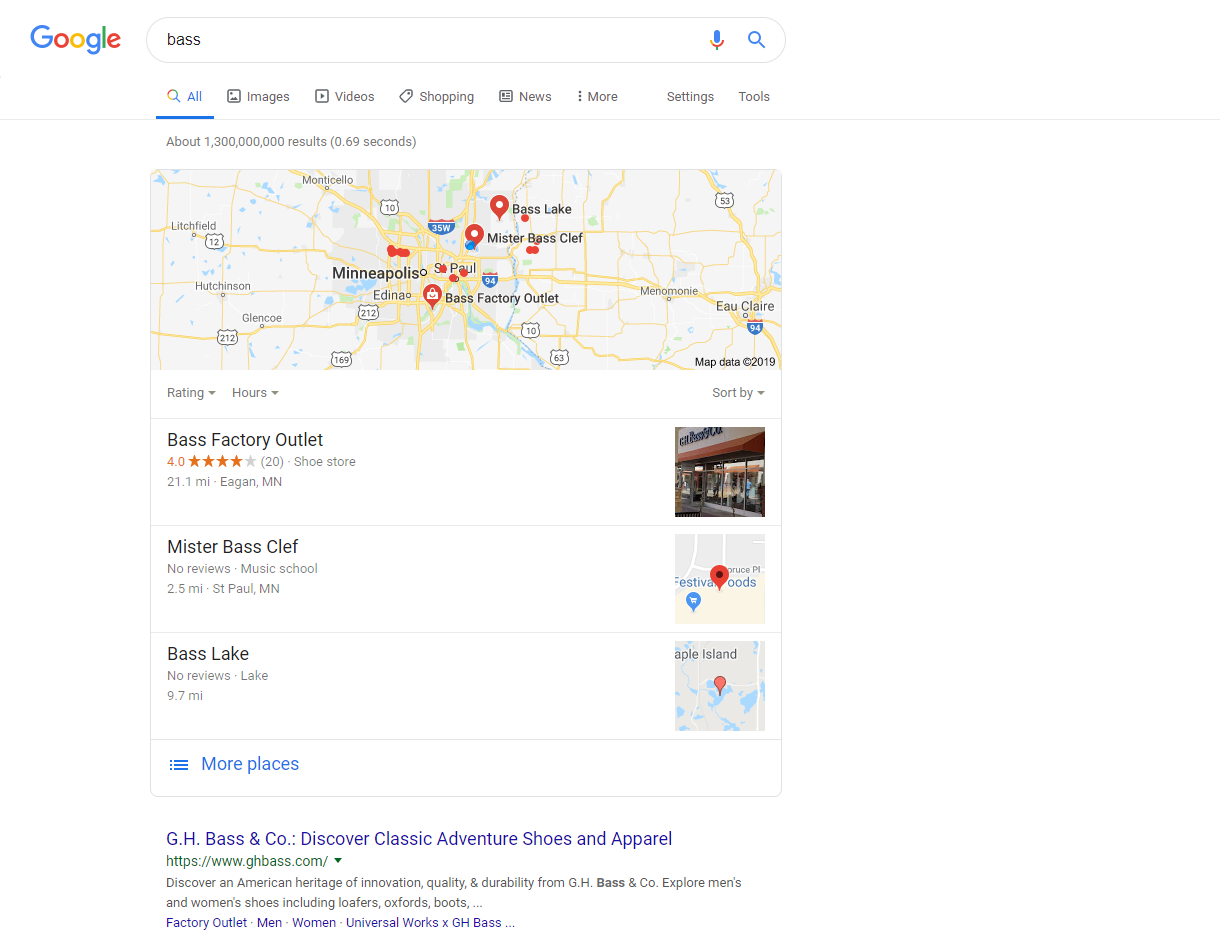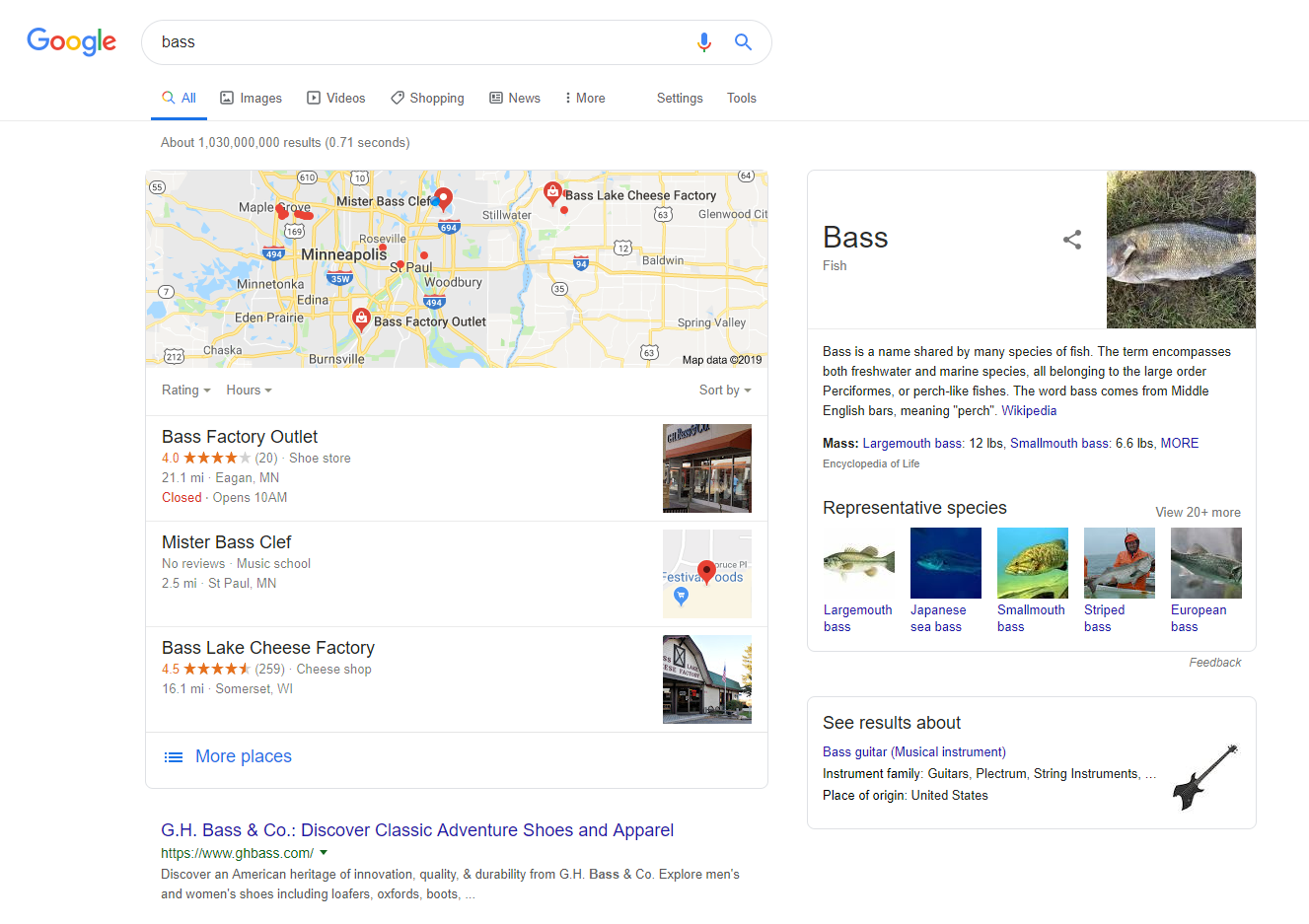
Subscribe to our newsletter!
We don't spam. You will only receive relevant and important tips for you and your business.
Unsubscribe anytime.
By Darren DeYoung
If you’ve ever asked yourself, “Why aren’t my ranking results on Google showing up at the top?” you’re not alone. Businesses often track their keyword ranking history, but many still struggle to claim that coveted #1 spot.
The truth is, your rankings are not as fixed or universal as you might think. Google tailors results in ways that can make your position look different depending on who is searching, where they are, and what device they’re on.
Let’s break down three common reasons why your Google search term ranking may not match what you expect and what you can do about it.

Google customizes results for each user. That means two people searching the same keyword at the same time may see different ranking results.
Here’s why:
For example, I searched for “bass” and got this:

Below the first organic result for the G.H. Bass & Co. is a number of fishing-related websites. I visited a few of those websites. I then opened a new tab and searched for “bass” again:

Well, what do you know, information about the bass fish is displayed in the knowledge panel. Google has “personalized” my search results based on past search behavior. Ironically, it also provided a link for more results on the bass guitar, as well.
Personalized search has been around since 2005, whether you are signed in to a Google account or not. Bing and Yahoo personalize their search results as well.
If you are signed in under a Google account, your search results are even more personalized. Because Google has more information about you from your accounts, your results will be even more relevant.
Google creates a personalized profile for every searcher based on their browsing history, search history, which websites they click on from the search results page, and then alters the future search results based on these interests. They also draw information from all Google products that you use:
All Google products have information about you and your interests and Google uses this information to personalize your search results and to provide a better experience.
It is possible to turn off personalized search, but Google can still personalize searches based on your geographic location, which we’ll discuss later.

A mobile-friendly website is huge! It loads quickly, adjusts to screen sizes, and avoids features like Flash that don’t work on mobile. If your competitors have optimized sites and you don’t, their results will show above yours for mobile users.
Today, websites need to focus on mobile to provide a better user experience.

Google pulls in local map listings, business directories, and other region-specific results. If you’re not optimizing your local SEO (such as Google Business Profile, local citations, and reviews), you’ll struggle to rank consistently in different areas.
There are no consistent Google rankings or search experiences across users, locations, or devices. So if your keyword ranking history shows ups and downs, don’t panic—that’s normal.
Here’s what you can do:
Improving your ranking results on Google isn’t about chasing one perfect spot, it’s about building a strong foundation that performs across devices and locations.
Ranking #1 on Google isn’t a one-time win, it’s a moving target. By focusing on mobile optimization, tracking your keyword ranking history, and strengthening local SEO, you’ll improve visibility where it matters most: in front of your customers.
👉 Need help boosting your Google search term ranking?
Contact our team to get a tailored SEO strategy that gets real results.